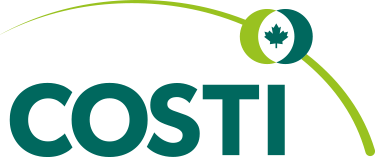Gambling and Problem Gambling Services for Special Populations
Funded by the Mental Health and Addictions Branch of the Ontario Ministry of Health and Long Term Care; one of the initial objectives of the COSTI Problem Gambling Service was to conduct a needs assessment in six targeted communities. The six targeted communities were the Polish, Portuguese, Punjabi, Spanish, Tamil, and Vietnamese speaking communities.
Together with the Centre for Addiction and Mental Health, COSTI used a participatory action approach to conduct the research. The needs assessment included questionnaires, focus groups, and interview data. The analysis was conducted using a combination of quantitative and qualitative methods. Community partner agencies gave feedback and participated throughout the research process.
The research points to the following:
There is little awareness around the issue of problem gambling.
For the most part, participants in the focus groups did not identify problem gambling as a priority issue, possibly due to fear of labeling their community. Barriers to information due to language or cultural needs were also a potential factor in the lack of awareness.
There is a need for public education, to raise awareness of gambling and problem gambling.
Responses overwhelmingly indicated that communities identified ethno-specific media as being the most effective in delivering the message. A variety of resources were cited, ranging from religious institutions to workshops at community centres, television, radio or print media.
There are differing degrees of stigma and shame associated with the issue of problem gambling, depending on whether it is seen as an acceptable recreational activity or not.
In focus groups, several of the target groups identified attitudes toward gambling that were influenced by religious, historical or cultural traditions. For example the Tamil and Punjabi groups, with the exception of youth, noted that gambling was often considered unacceptable. In contrast, the Polish, Portuguese and Spanish speaking groups did not perceive any stigma with gambling, unless it became a problem. Some groups noted that community attitudes toward gambling might change as they assimilate into Canadian culture. Most notably, Tamil men reported that in their country of origin gambling was looked down on, whereas card playing has become an acceptable means of social recreation for them in Canada. A similar theme emerged from the adult focus group in the Punjabi community.
There is a preference for ethno-specific services or workers that speak the same language.
Almost unanimously, focus group and questionnaire respondents identified a preference for ethno-specific agencies or workers. Language and cultural issues were seen as barriers to seeking services. Concerns were raised that interpreters may not convey non-verbal communication and that misunderstanding may occur in counselling and treatment. A theme that often arose, regarding people's desire to access services in their own language, was the need for confidentiality to be assured. The only concern with seeking help from an ethno-specific agency was that the individual would be identified as having a particular problem in the community.
There is a desire to address problem gambling, as part of broader issues such as family issues, or addictions in general.
As mentioned, participants did not often identify problem gambling as a priority issue. However, several groups showed interest in gambling issues if they were linked to other family issues such as children or family break-up. In addition, several groups had some familiarity with other addiction issues, such as problem drinking, and it may be appropriate to link these issues.
Research Findings
Summaries of the research findings are currently available in English Polish, Portuguese, Spanish, and Vietnamese [Adobe Acrobat files, 100 KB].
Executive Summary – Polish Community: English | Polish
Executive Summary – Portuguese Community: English | Portuguese
Executive Summary – Punjabi Community: English
Executive Summary – Hispanic Community: English | Spanish
Executive Summary – Tamil Community: English
Executive Summary – Vietnamese Community: English | Vietnamese
In addition to the research conducted in the Hispanic, Polish, Portuguese, Punjabi, Tamil, and Vietnamese communities, COSTI, in partnership with the Ontario Problem Gambling Research Centre and the Multicultural Council of Windsor/Essex County, participated in a research project that examined gambling and problem gambling in Windsor/Essex County, and the Afghan, Filipino, Greek, Indo-Caribbean, Iraqi, Jewish, and Somali communities in the Greater Toronto Area.
There are four separate, but related project final reports that describe the design/methodology, contain the findings/conclusions, and present the action plans from the research entitled Addressing Problem Gambling in Toronto and Windsor/Essex County Ethnic Communities: Report 1, Report 2, Report 3, Report 4 [Adobe Acrobat files, 300 KB to 1 MB]









